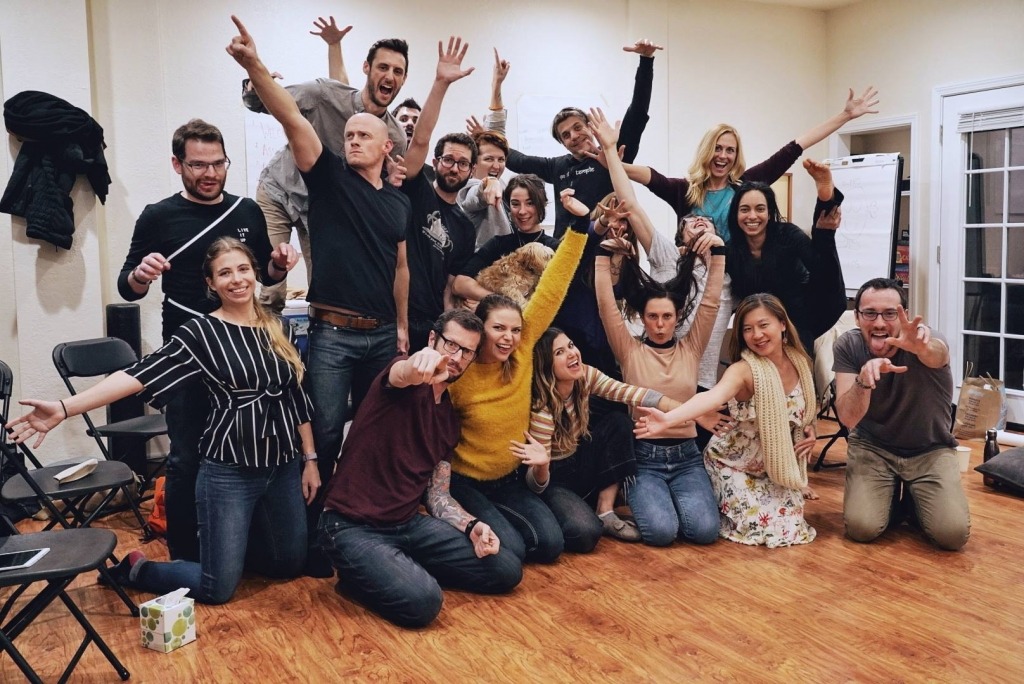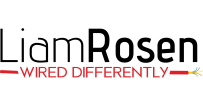
Last February, I completed a weekend-long course put on by an organization called Authentic Relating Training. The course and content were far outside my wheelhouse, but I’m glad I went, and the lessons continue to have an effect on my life almost a year later.
The Story
It all started at a house party in North Oakland. At house parties, my usual goal is to find The Most Interesting Person at The Party™, corner them somewhere, and bombard them with questions. My friend Jeff and I found ourselves opposite this night’s most interesting person, Heather McClellan, and she was handling the conversation with ease. We soon found out why: she was a self-billed emotional intelligence consultant with the majority of her background in something called authentic relating, a practice for deepening one’s interpersonal relationships. She happened to be co-facilitating a course in San Francisco the next month and gave us the link to sign up.
Normally, I wouldn’t have acted on this, but Jeff, who spends his days leading development teams for a healthcare technology company, was interested to apply the concepts at work, so he encouraged me to join him.
I paid the $295, very reasonable for an intensive weekend course, I thought, and tried not to do much research about authentic relating practices; I wanted to go in blind.
I did, however, allow myself to read the one article that came up over and over: Taylor Prewitt’s treatment of the Austin authentic relating community in The Atlantic. The key takeaway from that article:
“Authentic relating uses exercises, or games, to teach and facilitate the skills, like curiosity and empathy, necessary to quickly create deep, meaningful human connection.”
With that concise description in mind, I didn’t do much more thinking about authentic relating until…
The Course
On a chilly February morning, around twenty of us filed into a beautiful private residence in the hills of San Francisco’s Noe Valley. On the top floor was a single-room event space that would be our home for the weekend.
I took stock of the attendees: to very roughly and unfairly stereotype us, we were perhaps one third new-age hippies, one third tech industry professionals, and one third loosely affiliated with the Rationalist/Effective Altruism movement, with lots of overlap between the three categories.
Ryel, our head facilitator and co-founder of Authentic Relating Training, introduced the organization and what the course was about. ART’s specific bent is the intention to spread authentic relating to a wider audience — they had been practicing for a while, but felt that the community was very insular, and wanted to establish an arm of outreach as well as a non-profit mission: much of ART’s profits go towards bringing authentic relating into prisons.
Already, this sat well with me. I am deeply critical of practices that self-fulfill their target audience. One of my qualms going into the course was if the material would simply tell us things we already knew and wanted to hear. Even if this couldn’t be avoided, at least our money was in part going towards spreading the mission to those in situations that would most benefit from this sort of self-development work.
After the intro and some silence to leave space for everyone to block out the outside world and become fully present in the room, our first game began: we were to find someone else in the room that we had never talked to and spend one minute telling them assumptions we had about them. They then repeated the same for us.
At the conclusion of the game, we coalesced back into our circle and the room was opened for “shares”: a space for us to express questions and reactions about what had just occurred.
After shares, Ryel lead us through the first segment of the course material.
The course unfolded with that same structure throughout: material, then a game to hammer the points home, then shares and discussion.
The Challenge
In the first few hours, it became very clear that though this was a “Level 1” course, many of the other participants had either played authentic relating games in the past, or were involved in other aspects of the “authenticity community”: yoga, meditation, energy work, and other such affairs.
I quickly learned that involvement in this community came with its own language (“charge”, “holding space”, “impact”) , as well as its own set of norms about how to act in a group setting, and I was very much an outsider to it.
As a newcomer, my challenge was that the course and games started abruptly: we weren’t told how we should be playing the games or how we should be acting during the shares. We were to learn by doing. I asked Ryel for clarification, but he simply smiled and left it open to interpretation.
Though this is my preferred way to learn, in what could be a sensitive group setting, I was concerned about how I would be perceived by the group. Compared with the average person on earth, I suppose I have good emotional intelligence, but I’m not a saint. My background is in sales and male-dominated sports teams. My communication can be direct, no-nonsense, and brash.
Luckily, the setting and lack of context didn’t prove to be too much of a challenge. The other course-takers were understanding, and I was always helped when I asked for clarification around language. By the end of the weekend, I felt much more comfortable.
The Benefits
The benefits to me were twofold:
First, the ART coursework itself. Most of it was fairly obvious and generalized, with a number of new-age concepts: own your experience, assume nothing, equanimity, stereotyping, etc. However, several parts were extremely helpful to me. One example is ART’s concept of conflict transformation, as opposed to conflict resolution, that I’ve been able to apply in several real-life situations and has caused me to reframe conflict as something that can be welcomed and transformed rather than dreaded and avoided.
The bigger benefit was the context of the course itself: As soon as I entered, it was very clear that the classroom was a sacred space. Never in my life did I feel like I had entered a place so free of worry and judgment, with so many people united in pursuit of authentic communication and discovery. I treated the entire course like a blank slate game: In the morning on Saturday, I entered a room with a bunch of strangers who were comfortable giving me their honest opinions of me.
In this way, I learned a ton about how I interact in a group space and how others react to those interactions. Doubly helpful were debrief sessions each night that Jeff, his coworker Molly, and I did after the conclusion of the course, in which we further analyzed the material and our reactions to it.
Two specific tendencies I noticed:
I tend to dominate and lead groups early on, and while that may be an effective tool much of the time, I could do better at leaving space for others to speak, or even encouraging more reserved people to speak up if they don’t volunteer themselves.
When I discuss an emotional problem, I tend to rationalize or use “science-y” language to explain it. When it’s a problem that I’m facing myself, I often remove myself from the experience and describe it generally. This, again, has its benefits, but it also causes me to lose connection with those that are on the more emotional end of the spectrum.
The Reflection
I went into Authentic Relating Training with little to no expectations, and was pleasantly surprised.
My main hypothesis going into the course was that I was already “pretty good” at relating authentically with those in my life, but that I could use some tweaks and improvement. My hypothesis was correct, and I found the small tweaks and reiteration of the core concepts well worth the money and time I spent.
Nine months later, I continue to practice authentic relating concepts in a once-a-month t-group with several of my ART Level 1 classmates. Outside of t-group, I still reference some of the course material in thoughts and conversations.
The Pitch
I am not affiliated with ART, I just think they do a good job providing a service that most people in the world need.
ART is holding a Level 1 course, the same one I described here, in Oakland on January 25. If you’re a Bay Area local and feel inspired to join, you can sign up here. I’d be happy to answer any questions about what the course is like and if it would be worth it for your personal situation.
If you’re not in the Bay Area, ART holds courses in many major cities around the US; you can find a list via the same link.
